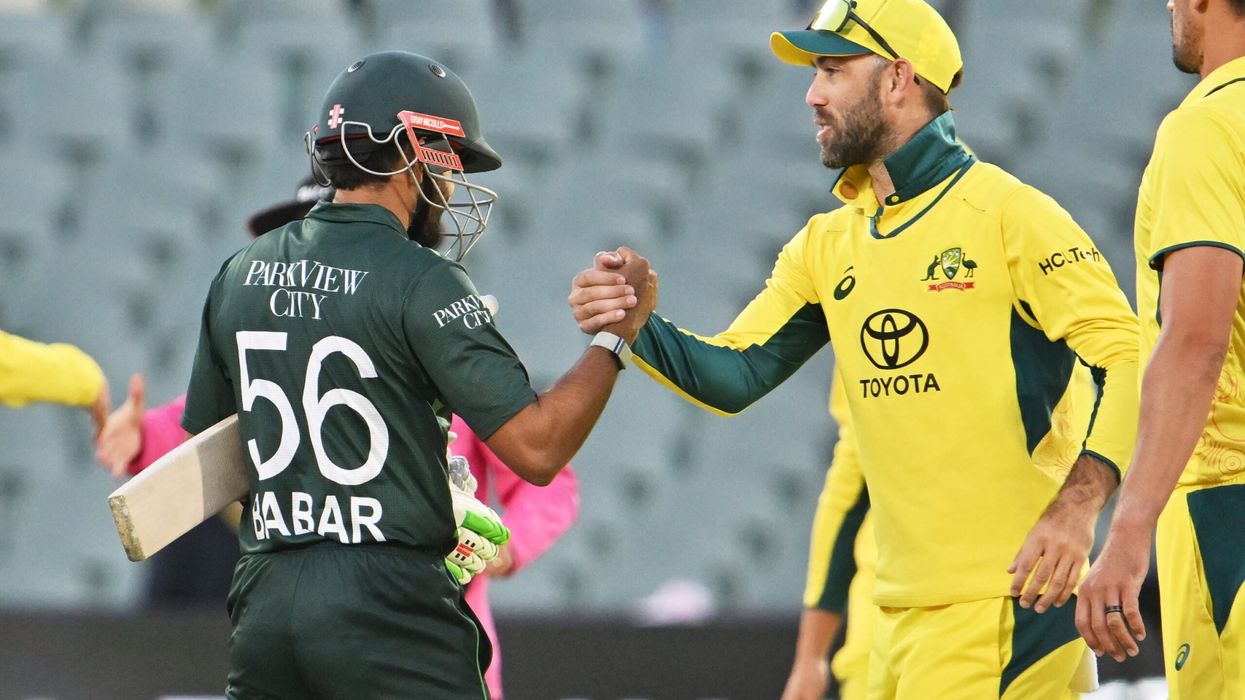Saim Ayub struck a powerful 82, and Abdullah Shafique remained unbeaten on 64 as Pakistan defeated Australia by nine wickets in the second ODI at Adelaide Oval, levelling the series on Friday.
Chasing a modest target of 163 after a stellar 5-29 from Haris Rauf, Pakistan reached 169-1 with 141 balls remaining. The victory set up a series decider scheduled for Sunday at Perth Stadium, following Australia’s narrow two-wicket win in the first ODI in Melbourne.
Ayub and Shafique initially took a cautious approach, held back by tight bowling from Josh Hazlewood and Pat Cummins, scoring just 47 runs in the first 10 overs. However, they picked up the pace, with Ayub launching a six off Cummins and later another off Mitchell Starc.
Ayub, 22, was dropped on 47 by Adam Zampa and soon brought up his maiden ODI half-century in only his second game. Shafique joined the scoring with big hits of his own. Ayub’s innings ended when he attempted a big shot off Zampa, caught by Hazlewood after a 71-ball effort that included five fours and six sixes.
Captain Babar Azam (15 not out) then joined Shafique to complete the chase, finishing the match with Pakistan’s 10th six.
"The most important thing is the team won," said Ayub. "We planned to be positive and not focus on the result, but playing as a team is key. Credit goes to Haris Rauf, and the other bowlers also supported him well."
Australia’s struggles
Rauf’s pace troubled the Australian batting order after Pakistan captain Mohammad Rizwan chose to field. Steve Smith was the top scorer with 35 before Australia were bowled out in the 35th over. Rizwan also took six catches.
"It wasn’t one of our best days," said Australia captain Cummins. "You hope for more than 160. They bowled well, but we were looking for a bigger score. We tried to be aggressive in the field, but it didn’t work out."
With Mitchell Marsh and Travis Head on paternity leave, Jake Fraser-McGurk and Matt Short opened again but failed to make significant impacts. Fraser-McGurk hit three boundaries in Naseem Shah’s first over before being lbw for 13 to Shaheen Shah Afridi. Short, after being dropped on eight, fell for 19 to a catch by Azam off Afridi.
Josh Inglis made 18 before gloving to Rizwan off Rauf, who then dismissed Marnus Labuschagne (6), leaving Australia at 87-4. Smith’s 35 ended with an edge off Mohammad Hasnain, and Australia continued to struggle. Rauf later bowled Glenn Maxwell for 16 and secured his second ODI five-wicket haul by dismissing Cummins for 13, assisted by Rizwan once again.
(With inputs from AFP)




